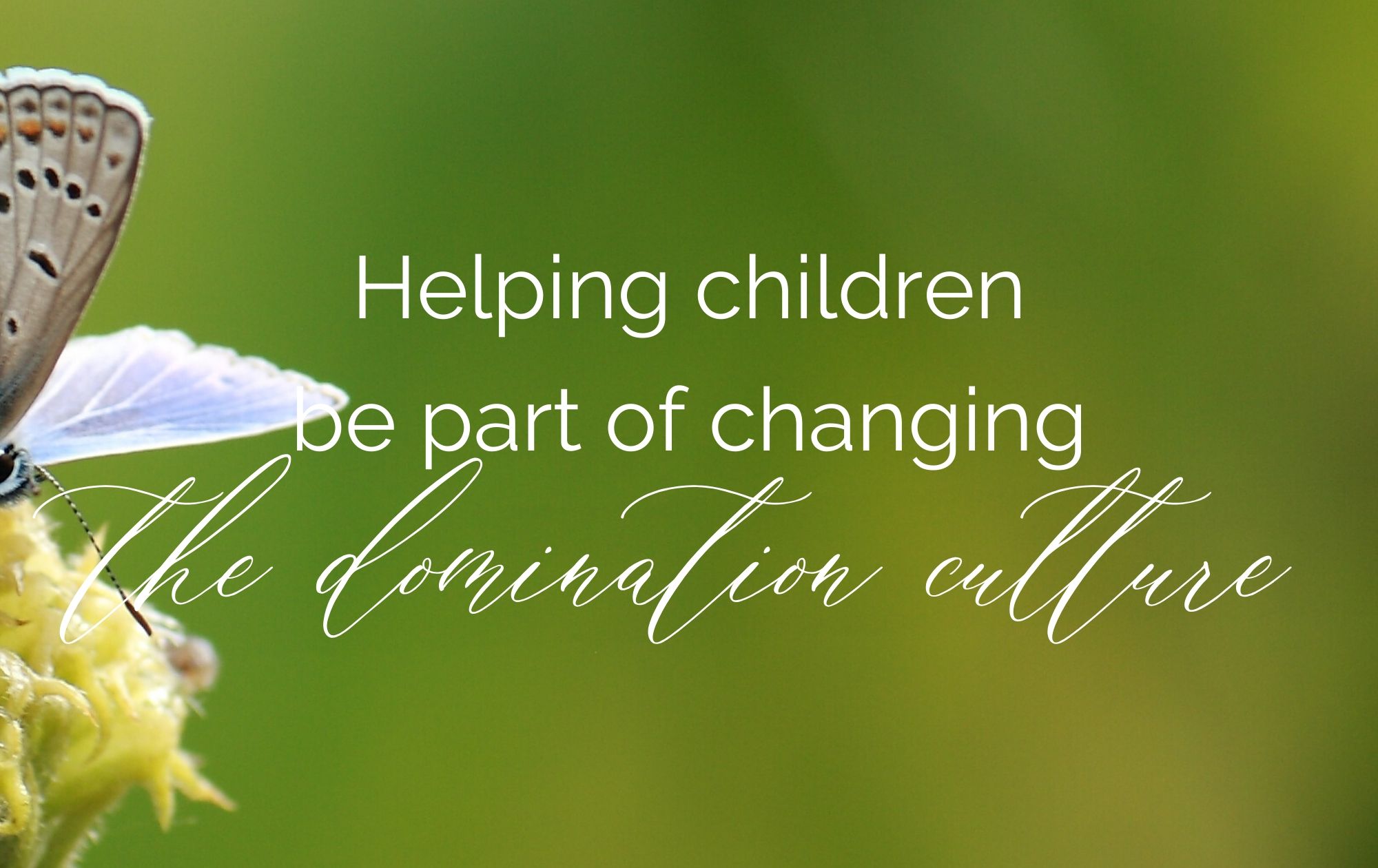I’m passionate about supporting mothers to respond in new-paradigm ways to their children – specifically, with compassion and valuing of the child’s agency and autonomy; in ways that help children stay connected with their true nature as beings of Love and Will (sacred power).
And yet, so much of the world and the world’s systems are still based on the domination/colonised culture. So how can we be with our children so that they don’t internalise the beliefs and behaviours of this culture (or do so much less), and so they stay connected with their lovingness and willingness, and are part of creating a paradigm shift?
I’ve been so enjoying walking alongside mothers who are navigating these things, and who are helping their children see the domination system clearly, rather than internalising it.
We can do that in three main areas:
Birth:
Reclaiming our sacred power as women to give birth. So much of the medicalised birthing system is about what the birthing woman is “allowed” to do. Whenever we hear the word, “allowed,” we know there is the domination paradigm at play. The more we understand our power as birthing women, whilst using the support of the medical model if and when necessary, we support a change in culture, starting with pregnancy and birth. Advocating for our children, even before they are born and as they are being born, especially around their Love-Needs and Will-Needs (connection and agency), and listening to their feelings if they experienced separation and powerlessness, is vital. If we experienced power-over or our baby did around birth, healing is so valuable and important.
Parenting:
The key aspects of Psychospiritual Parenting are about providing a Loving Environment (closeness, connection, attunement, compassion) and a Willing Environment (agency, autonomy, choice). How we respond to our child has a powerful impact on their own self-relationship, particularly their capacity for self-compassion and for willingness rather than internal coercion and guilt. How a child is treated at home has such impact, and helps them understand that the domination system isn’t ‘just how things are.’ If they are treated with compassion and respect for their willingness at home, when they go out into the world and see judgment or coercion or punishments and rewards, they know that it isn’t ‘just the way things are.’
Learning/education:
The education system has been such a core part of the domination/colonisation paradigm, so we often need to be strong advocates for our children here. That might mean homeschooling, or choosing an alternative school. If we do send our child to a school that has elements of the domination culture such as punishments and rewards, shaming and blaming, and minimal intervention of harshness between young people, there are things we can do to help our child so that they are less likely to internalise these experiences, and are more likely to be part of creating the new paradigm.
Here are some ideas:
Listening with compassion to their feelings and thoughts when they experience, or see others experiencing, punishment or rewards, and helping them stay connected with the painfulness of this, rather than normalising it as ‘just how things are’;
Helping them see that when adults in power, such as teachers, judge or punish them, that they do not need to internalise that way of seeing themselves and others, and helping them see that the adult has got something going on for them, rather than them taking on the judgment or punishment.
Listening to their feelings around any experiences of being shamed, judged or punished, or seeing that happen to other children, so that they don’t internalise those things and do them to themselves.
Valuing their learning and expression through play and conversation and other non-written forms as well as through the written word.
Supporting them in trusting their bodies and listening to when they feel a ‘yes’ or a ’no’ in their body. Helping them value the wisdom of their body as well as the power of their cognitive mind.
Helping them understand that there are many different ways of learning and contributing in the world, and that each person’s unique skills and contributions can be valued.
We are co-creating a new paradigm from within the old paradigm, and at this crossover point, some of our own biggest work is our own inner work, as we increasingly replace inner judgment with inner compassion, and inner coercion with willingness. Most of all, learning to be deeply compassionate with ourselves about how it can be for us to be aiming to parent in new-paradigm ways from within the old paradigm makes such a difference!
Much love! xoxox
